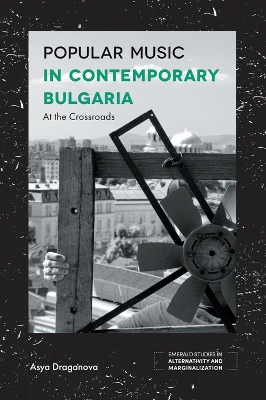Emerald Studies in Alternativity and Marginalization
1 total work
Bulgarian popular music, the meanings it articulates, and the infrastructures of its creation, operates within a web of inter-dependencies with changing social and political contexts. Positioned on the edge of Europe, between the cultural constructs of the 'East' and 'West', Bulgarian popular music negotiates the complexities of perceived 'global' values and specificities of the 'local'.
This book takes an ethnographic approach to qualitative methodologies to create a mosaic of perspectives through the participation of music artists, critics, business figures, copyright specialists, and young audiences. It employs the metaphor of the 'crossroads' to describe the realities of the contemporary Bulgarian popular music field, developed amidst the prolonged transitions that followed the communist era. In the context of struggles for social change, popular music has participated in the creation of rituals and symbols of protest and resistance. At the same time, the new market environment created opportunities for popular music to formulate a business approach to producing standardised content.
The Balkans, are a melting pot of music traditions, but are also framed as pathologically different from the rest of Europe. This book suggests that an internalised negative stereotype adds tacit complexities to Bulgarian popular music, while at the same time, expressive markers of identity, such as folklore and language, are celebrated.
This book takes an ethnographic approach to qualitative methodologies to create a mosaic of perspectives through the participation of music artists, critics, business figures, copyright specialists, and young audiences. It employs the metaphor of the 'crossroads' to describe the realities of the contemporary Bulgarian popular music field, developed amidst the prolonged transitions that followed the communist era. In the context of struggles for social change, popular music has participated in the creation of rituals and symbols of protest and resistance. At the same time, the new market environment created opportunities for popular music to formulate a business approach to producing standardised content.
The Balkans, are a melting pot of music traditions, but are also framed as pathologically different from the rest of Europe. This book suggests that an internalised negative stereotype adds tacit complexities to Bulgarian popular music, while at the same time, expressive markers of identity, such as folklore and language, are celebrated.
